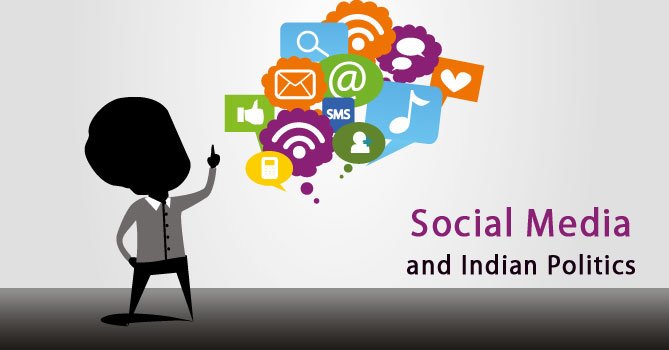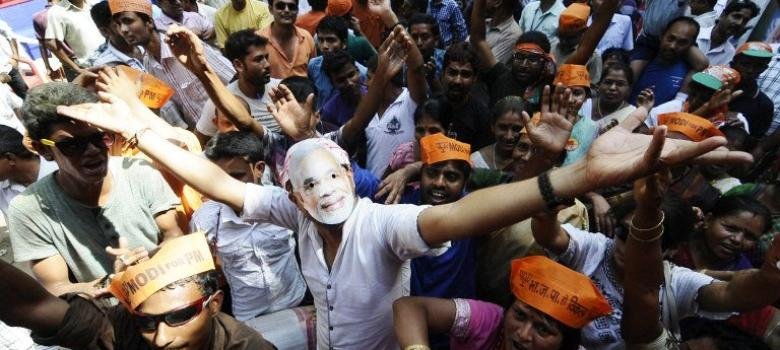The advent of social media has revolutionized the way people communicate, express their opinions, and interact with each other. In the last few years, social media has also played a significant role in Indian politics.
The rise of social media in Indian politics has led to a shift in the way political parties interact with the electorate, the way campaigns are run, and even the way people vote.
In this article, we will explore the evolution of social media in Indian politics, its impact, and some famous incidents that have shaped its course.
Also read: The Power of Dissent in Indian Politics: From Gandhi to the Farmers’ Protests
The Evolution of Social Media in Indian Politics
Social media has been a part of Indian politics for more than a decade now. In 2009, the Indian National Congress was the first party to launch a social media campaign for the general elections. The campaign, called “Aam Aadmi Ka Sipahi,” aimed to connect with the common man and address their issues. The campaign was a huge success, and the Congress party won the elections.

Since then, social media has become an integral part of Indian politics. Political parties use social media to connect with the electorate, spread their message, and engage with the youth. Social media platforms such as Facebook, Twitter, Instagram, and WhatsApp are widely used by political parties to reach out to voters.
Impact of Social Media on Indian Politics
Social media has had a profound impact on Indian politics. It has democratized political communication, making it easier for political parties to reach out to voters directly. Social media has also given a voice to the youth, who have traditionally been excluded from political discourse.

With the rise of social media, the youth have become more politically aware and active, leading to the emergence of new political movements and parties.
One of the most significant impacts of social media on Indian politics has been its ability to mobilize people for social causes. Social media has been used to raise awareness about issues such as corruption, gender inequality, and social justice. In 2011, the anti-corruption movement led by Anna Hazare was largely driven by social media. The movement was supported by millions of people across the country who used social media to express their solidarity.
Famous Incidents:
The rise of social media in Indian politics has been marked by several famous incidents. Here are some of them:
The 2014 General Elections: The 2014 general elections saw a significant shift in the way political parties used social media. The Bharatiya Janata Party (BJP) used social media extensively to reach out to voters, and their campaign was widely credited with their landslide victory.

The 2019 General Elections: The 2019 general elections saw social media playing an even more prominent role. The BJP again used social media extensively, and their campaign was widely considered to be one of the most effective in Indian political history.

The Delhi Elections: The Delhi elections in 2015 and 2020 were notable for the extensive use of social media by the Aam Aadmi Party (AAP). The party used social media to connect with the youth and spread their message of clean governance.

The Doklam Crisis: In 2017, the Doklam crisis between India and China was largely driven by social media. Both Indian and Chinese citizens used social media to express their views on the issue, leading to a heated exchange of views.

Conclusion:
Social media has emerged as a powerful tool in Indian politics. It has democratized political communication, mobilized people for social causes, and given a voice to the youth. With the rise of social media, political parties have had to adapt to new forms of campaigning, and the way people vote has also changed.
Social media is likely to play an even more significant role in Indian politics in the years to come, and political parties that fail to adapt to these changes are likely to be left behind. With the increasing penetration of social media in India and the rising popularity of platforms like TikTok and Instagram, it is clear that social media is here to stay.
However, the rise of social media in Indian politics has also brought its fair share of challenges. The spread of fake news and misinformation has become a significant concern, with many political parties using social media to spread false propaganda. Social media has also become a platform for hate speech and abuse, leading to the spread of divisive ideologies.
To mitigate these challenges, social media platforms have started taking measures to curb the spread of fake news and hate speech. Platforms like Twitter and Facebook have started fact-checking political ads and posts, while WhatsApp has limited the forwarding of messages to prevent the spread of misinformation.
In conclusion, the rise of social media in Indian politics has brought about a significant transformation in the way political parties engage with voters. The impact of social media on Indian politics has been significant, and it has become an integral part of election campaigns. While social media has its challenges, it is clear that it will continue to play a prominent role in shaping Indian politics for years to come.



